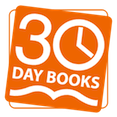How to Become a Professional Proofreader
Have you always had a way with words? Are you a sticker for grammar, and do you read style guides for fun? Do people tend to turn to you when they aren’t sure whether their important letters or essays are still riddled with grammatical errors and spelling mistakes? Are you, perhaps, a high school English teacher or a content writer?
If it has ever occurred to you that you’d make an excellent professional proofreader, you are probably right. How do you get into the business, though, whether you are looking for a part-time gig or two on the side, or a full-time job?
1. Understand What Proofreaders Do
Proofreaders are, in a way, the lifeguards of the literary world. They are responsible for the last, and only the last, step in the editing process, by catching typos, spelling errors, grammar faux-pas, inconsistencies in style, and typesetting or formatting problems. They’re not developmental or copy editors.
If you want to help writers whip their entire manuscripts into shape by killing terrible plot points and moving chapters to more appropriate places, proofreading isn’t for you. If you’re the kind of person who “can’t see the forest for the trees”, though, and you just love making sure that all the small details are in order, you may have what it takes to be a proofreader.
2. Know What Education and Training Are Helpful
Proofreaders don’t necessarily need advanced degrees to be great at their jobs, but it definitely helps if you have a Bachelor’s Degree in a language-related field, like creative writing or literature, or if you at least have any degree at all. While a combination of higher education and natural talent lays a great foundation, you probably won’t specifically be prepared to be a proofreader. That’s where shorter courses can come in. These are often offered through community colleges, and can set you up for your first gig as a professional proofreader.
In addition, you’ll want to read widely to gain further insights into beautiful language as well as the types of mistakes most people make. You’ll want to study the most popular style guides half to death, including academic ones like APA and MLA.
3. Start Looking for Jobs
Working is, at the end of the day, the only way to get experience. Maybe you’re currently in a field where you have plenty of contact with the written word. If you work at an employment agency, for instance, you may have the opportunity to help people with their resumes. If you’re a high school teacher, proofreading is already a small part of your job. To go pro, you will simply have to dive into the deep end. That may mean applying to work at local newspapers or for websites. Most pro proofreaders are freelancers, however, and freelance marketplaces are a great way to attract your first paid clients.
As the clients start rolling in, always ask them to leave reviews. In time, you will be able to set up your own website, through which you can attract better work. Many proofreaders will quickly settle into a niche, such as academic writing, proofreading transcripts, or proofreading fiction. The more strongly establish yourself in your chosen area of expertise, the more quickly you can build a name for yourself. At that point, you may find yourself drowning in work as existing clients recommend you to others.
As a freelancer, you will have to grow a solid set of business skills, too — and for that reason, you may want to consider devoting a whole day a week to professional development.
